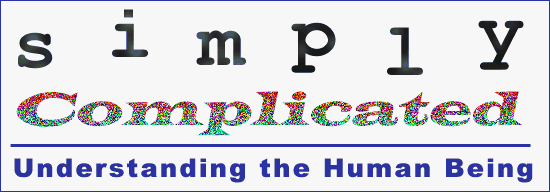Reflexes and Thinking
All animals react to things instinctively. If there's danger or hunger or sleepiness, they react accordingly..
These are base reactions, survival instincts. Learned reactions are those that individuals add to their own list of reactions.
When the horse we are riding tries to veer to the right, we pull the reins to the left. When someone holds out a hand, we shake it. When waiting to attend an event, we stand in line. If we want to ask a question, we raise our hands.
Humans learn something -- like riding a bicycle -- and their minds store the instructions on how to do it. From then on, they can do the activity by reflex, without conscious thought as to how they do it. They learn social rules the same way: when something happens, they learn to react with actions acceptable to the group. This allows them to turn their minds to fulfilling their everyday needs.
They do not often consider possibilities that are not in the path. When something happens, then, they have a reaction prescribed by the group. Rightness or wrongness is decided by the group...and they are free to instinctively react.
However, another part of human beings wants to ponder the possibilities. They want to go beyond base and learned reactions because their brains can consider things beyond the immediate, beyond what they can see or touch or smell, beyond the concrete world they live in. Humans can think about anything. This is exciting and frightening...and the very basis for the complexity that is part of being human.
Considering possibilities is much, much more stimulating to our brains because it means analyzing, examining, interpreting. We react and analyze. Other animals just react (or mostly react); we react and we can analyze our reactions and the actions we react to. We think about it.
Because humans can think on several levels about something, they can interpret the meaning of an action. And they can wrongly interpret. They can mistake an action as a slight, for example. This leads to a very complicated social system.
They gravitate, thus, to simple reaction-based social systems. It may not be the best, but it is simpler. While thinking is natural for them, it requires imagination. Reacting requires no imagination at all.
Often we set up our societies in such a way as to give much power to our leaders, more power than is necessary for us to live with each other peacefully. We then look to them to do our thinking for us, like parents do for children.
So, human beings need to react instinctively and they need to think. They are both reflexive doers and imaginative thinkers...this makes them a very volatile species.
When human beings acknowledge that much of what they do comes from base reactions and then actually think about situations and relationships, much more is possible for them.
Next Chapter
Title Page

